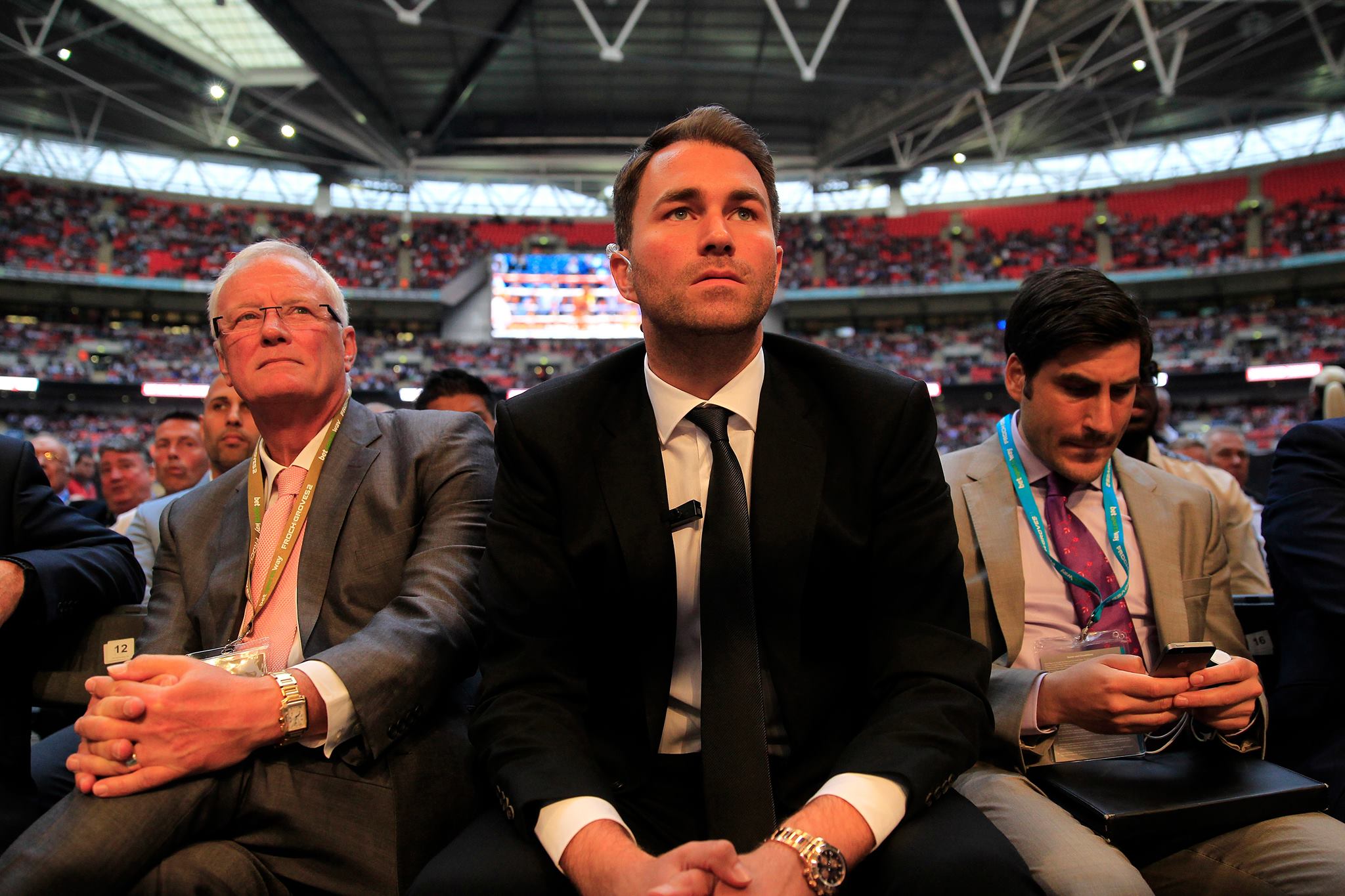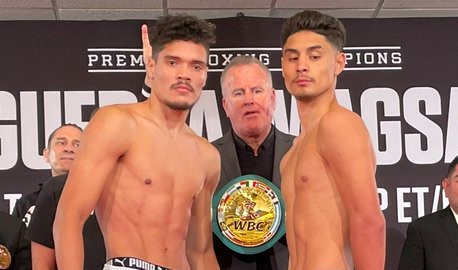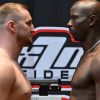By Guy Louis Rocha and Eric N. Moody
Judgment day, July 3, arrived like a blast from a steel furnace. The heavyweight contest, established as the main attraction during a five-day Reno Carnival extravaganza, drew some 4000 spectators to the arena at Reno’s east end. There they wilted under the sun’s blistering rays. Fight time was scheduled for two o’clock, but much to the inconvenience of the sweltering crowd the opening bell (the same one that had been used at the Corbett-Fitzsimmons fight) did not sound until 3:07.
Wearing light five-ounce gloves, Hart and Root squared off at center ring and then proceeded to methodically batter away at each other. In the seventh round, Root landed a hard right to Hart’s body, sending him crashing to the canvas. Hart’s corner claimed foul, but Jeffries refused to acknowledge any low blow. If the bell hadn’t ended the round, Hart would have lost the fight then and there.
By the 12th round, Root appeared to be slightly ahead on rounds and on his way to again beating Hart. It was then that Hart slammed “a hard right to the pit of Root’s stomach” – the corkscrew punch? After writhing on the canvas in agonizing pain, Root desperately tried to grab the closest ring rope and pull himself to his feet. But it was to no avail; Jeffries counted the game boxer out.
Root blamed his failure to see the knockout punch on the blinding sun. His manager called it a fluke. Nonetheless, Hart was the victor. The Reno papers called him the heavyweight champion of the world. When asked about the significance of his victory, Hart confidently replied, “I will try to wear with honor the belt that Jeffries has taken off. I am ready for any man in the world now, barring negroes.” He had beaten Jack Johnson once, and was definitely not interested in trying to do it again.
Jeffries still was guarded about proclaiming Hart the world’s champion. “The winner of this fight,” he told the press, “I hope will fight his way to a point where none can dispute his claim to the championship.” By no means did the retired heavyweight champ crown his successor that eventful day in Reno.
The self-proclaimed heavyweight king needed to convince a much larger audience that he deserved to be called champion, and not just a pretender to the throne. Hart made plans to do just that. On January 15, 1906, a crowd in Butte, Montana saw Pat Callahan KO’d in two rounds of an exhibition match.
The Butte contest, however, proved to be Hart’s only successful “title defense.” A relatively unknown Canadian boxer, Tommy Burns, soon brought Hart’s quest for world wide recognition to a quick end. On February 23, 1906, the 175-pound Burns banged out a lopsided decision over his favored opponent in a twenty-round match at Colma, California. The fight not only erased Hart’s claim to the heavyweight title, but, if Hart is considered a valid titleholder, gave him the unenviable distinction of owning the shortest reign in heavyweight boxing history: 235 days. Only recently has Leon Spinks inherited Hart’s dubious mantle.
Tommy Burns claimed the heavyweight title and went on to accomplish much of what Hart tried and failed to do. He whipped everyone who challenged his right to the crown. By the time he agreed to fight Jack Johnson, most followers of the fight game called Burns the heavyweight champion of the world. They were not so courteous to Johnson after the unpopular black boxer gave Burns a sound thrashing in Sydney, Australia on December 26, 1908.
Jim Jeffries came out of retirement to avenge the injured pride of the white race. Instead, on July 4, 1910, the brash and flashy Johnson thoroughly destroyed “The Great White Hope.’ When Jeffries’ corner threw in the towel in the fifteenth round, Johnson became the uncontested world heavyweight champion.
Ironically, the “Fight of the Century” – as the Johnson-Jeffries contest came to be known – took place at the same site where Jeffries had counted Root out, and hart had claimed the vacant title, five years before. By 1910 events had come full circle; the sporting question of just who deserved to be called the heavyweight champion of the world had been first raised, and finally settled, on Reno’s east side.
Following the 1905 bout in Reno, Root sought, and won, one more contest. He retired in 1906 and, using his well invested earnings, went on to become a prosperous businessman. On June 9, 1963, he died a wealthy man in Los Angeles. Nat Fleischer’s list of the ten greatest light heavyweights ranks Jack Root number nine.
Hart’s later fortunes would not compare in a material sense to those of the man he vanquished. After his defeat by Burns, he soon was relegated to the ranks of journeyman heavyweights. He was to fight again in Nevada, but the outcome would only bring more adverse publicity to the fading boxer. On May 30, 1907, Mike Shreck, the “Cincinnati Dutchman” and Root’s former sparring partner, scored a twenty-first round TKO over the “ex-champ” at Tonopah’s Big Casino Athletic Club.
In 1910 Hart hung up the gloves for the last time and returned to his farm in Fern Creek. His only association with the ring after that was the occasional refereeing of matches in nearby Louisville. He died on September 17, 1931, a forgotten man. An asterisk now hugs his name in the record book, reminding us that Hart, and the city of Reno, may have been involved in a world heavyweight championship fight in 1905.


















